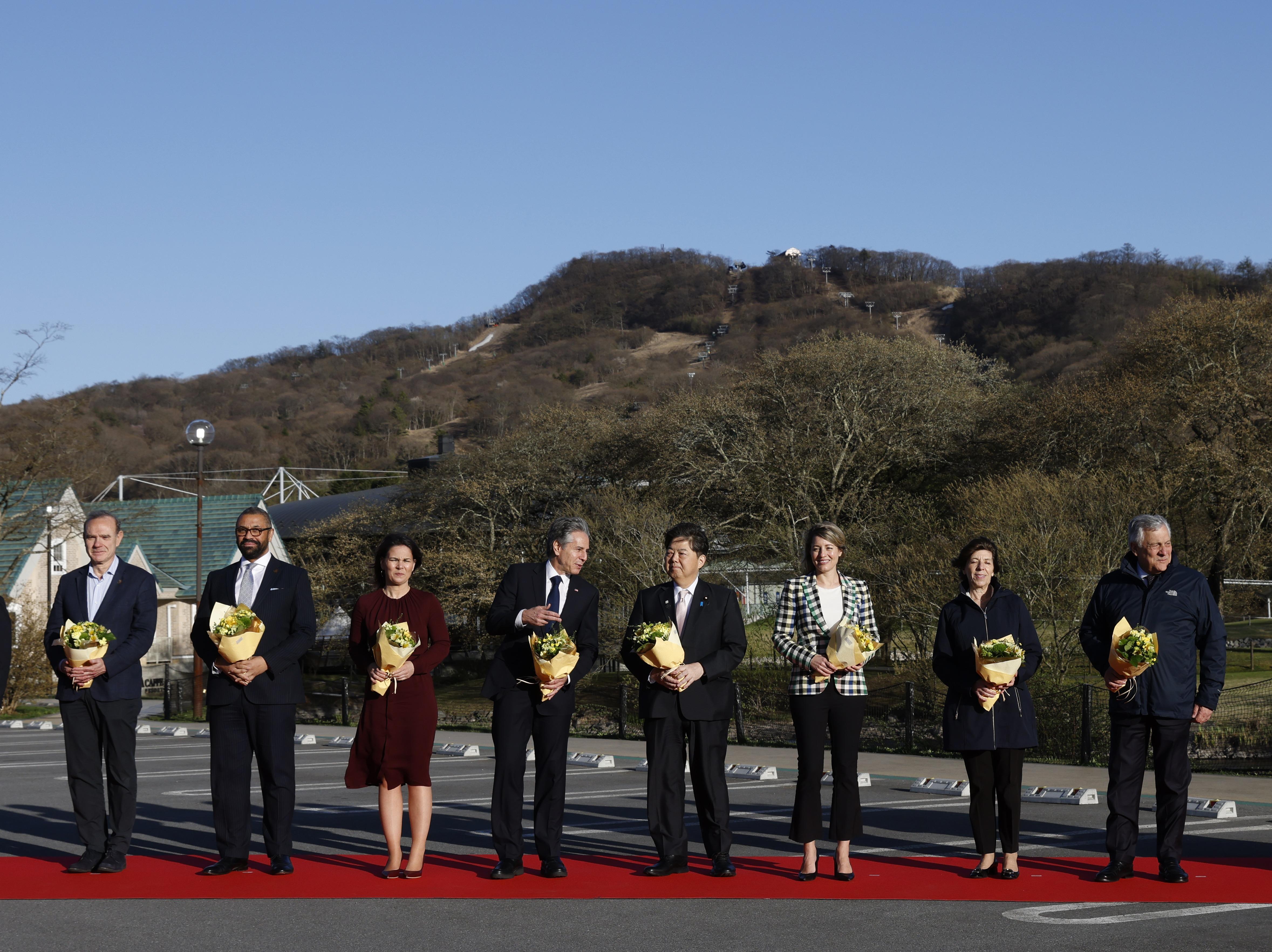 (From left) Deputy Secretary-General of the European External Action Service (EEAS), Enrique Mora, British Foreign Secretary James Cleverly, German Foreign Minister Annalena Baerbock, US Secretary of State Antony Blinken, Japan's Foreign Minister Yoshimasa Hayashi, Canadian Foreign Minister Melanie Joly, French Foreign Minister Catherine Colonna and Italy's Foreign Minister Antonio Tajani pose at a welcoming ceremony for G7 Foreign Ministers' meeting in Karuizawa, Japan, April 16, 2023. (PHOTO / POOL / AP)
(From left) Deputy Secretary-General of the European External Action Service (EEAS), Enrique Mora, British Foreign Secretary James Cleverly, German Foreign Minister Annalena Baerbock, US Secretary of State Antony Blinken, Japan's Foreign Minister Yoshimasa Hayashi, Canadian Foreign Minister Melanie Joly, French Foreign Minister Catherine Colonna and Italy's Foreign Minister Antonio Tajani pose at a welcoming ceremony for G7 Foreign Ministers' meeting in Karuizawa, Japan, April 16, 2023. (PHOTO / POOL / AP)
SAPPORO, Japan – Group of Seven (G7) environment and energy ministers on Sunday failed to set a deadline for phasing out coal-powered energy despite vows for net-zero emissions as their two-day talks ended in the Japanese city of Sapporo.
The ministers underlined G7's commitment to "accelerating the clean energy transition to net-zero greenhouse gas emissions by 2050" in a 36-page communique released after the G7 Ministers' Meeting on Climate, Energy and Environment held from Saturday to Sunday.
More aggressive moves to reduce carbon emissions remain a highlighted difficulty for G7 as the world's major industrialized economies continue to clash on coal.
Japan, as host of the meetings, was reluctant to agree to a specific time frame for ending the resource-poor country's use of coal given its likely need to rely on the energy source for at least most of the 2030s, national news agency Kyodo reported.
READ MORE: G7 ministers set big new targets for solar, wind capacity
The inclusion of natural gas within the phase-out goals adds pressure on Japan, which plans to rely on the energy source for around 20 percent of its electricity generation in fiscal 2030, alongside coal for roughly 19 percent and crude oil for around 2 percent, the report added.